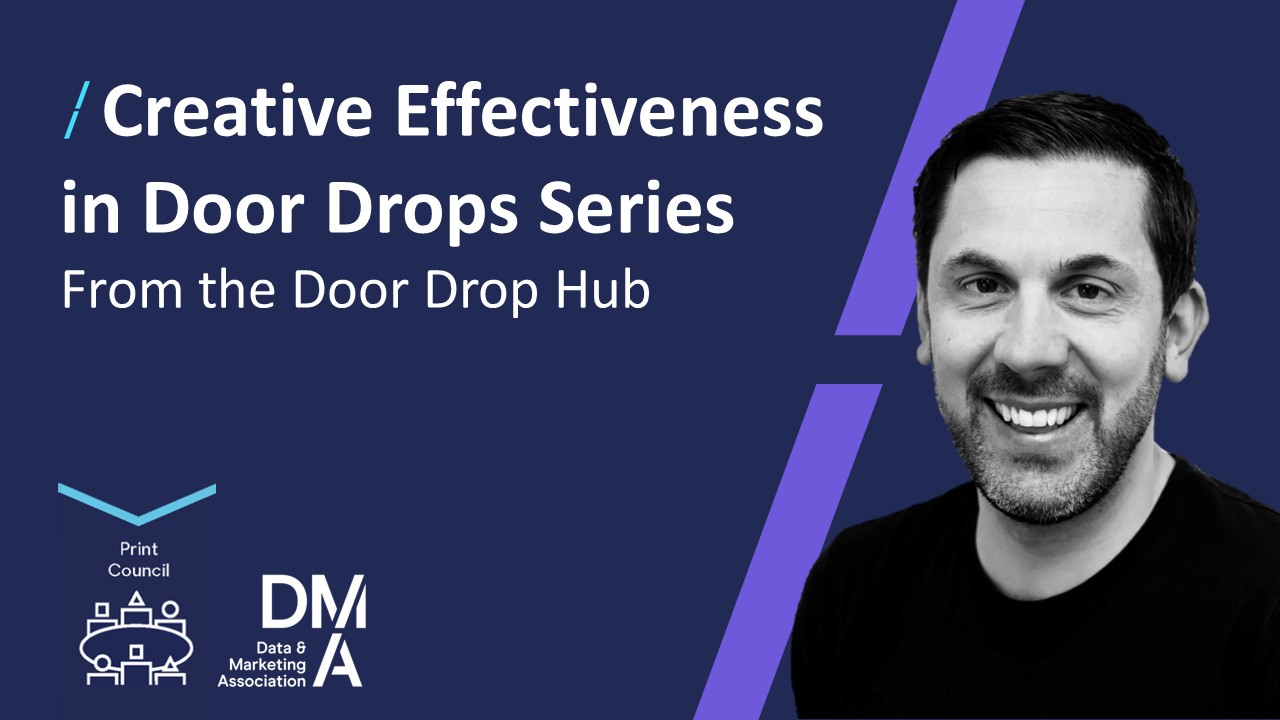The role of data in content marketing: how itâs changing the creative process
03 Oct 2014
Should data inform your content marketing strategy? Can a set of tools do a better job than an editorial team? I tuned in to a live chat on the Guardian Media Network on Tuesday 30 September where DMA board member and MD of Data Talk, Tim Drye, joined an expert panel to talk about the changing role of data in content marketing.
The panellists all agreed that far from replacing a content marketing strategy based on human decisions with one that’s purely data-driven, it’s a question of creatives and data analysts working together to give customers what they want, when they want it, all the while being transparent and respecting their privacy.
Data is not the starting point for data-driven content marketing, says Tim, it’s having empathy for the person viewing your content. Only then can you use the data you have wisely to respond in real time and develop longer term perspectives on consumer characteristics.
Tim also urges brands to “measure what you value otherwise you will value what gets measured. With so much data out there, we often don’t understand the bias within sources… [which is why it’s important to] find your own perspective rather than looking in someone else’s mirror.”
It’s something that rings true with fellow panellists. Ryan Skinner, senior analyst, content marketing, Forrester Research says: “There’s a surfeit of data and most of that data has an agenda. Facebook’s own metrics tilt the pitch to suit marketing activities on Facebook.”
Yes data is everywhere and there are lots of tools available (the panellists discuss the merits of a number of them) but it’s about what you do with the data that matters.
Where marketers can fall short is analysing what they have available correctly. As fellow panellist Adam Mason, co-founder of Datify, says: “It’s surprising how many companies are unaware they are sitting on a plethora of raw customer data that can be directly applied to their content marketing.”
Saying that, content data tools and intelligence allow brands to know what people really want to watch/read/share and act on it with timely, relevant content but there is no data and creativity divide.
The best creative is data-informed. Google learnt from its data that a campaign using sport for Generation Z should focus on dance not football, says Ryan. So that’s what they did – and it was a big win for them.
The days of marketers sitting around a table thinking of what could work are over – today’s marketers need to be much more savvy about data to reach their full potential. But while it’s worth automating as much as possible there will always be a place for human intelligence in the equation.
Read the Guardian Media Network’s live chat on the role of date in content marketing here




Data helps turn opinion into fact. Your content marketing will always carry more weight if it is based on objective evidence.
But data will not tell you what the subject of your content should be, and that's more important. Writing a white paper with great data but an irrelevant subject will not get the warm leads you need.
We always look at LinkedIn groups, the DMA website or ask our sales agents about the popular subjects prospective clients are discussing.
Contact Centre & Telemarketing Council Member
Head of Marketing